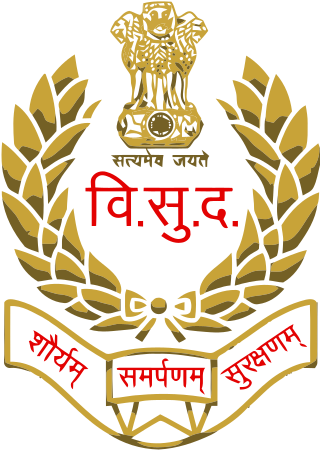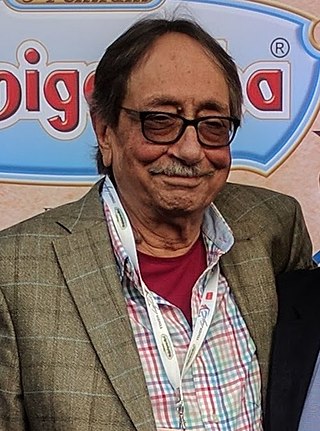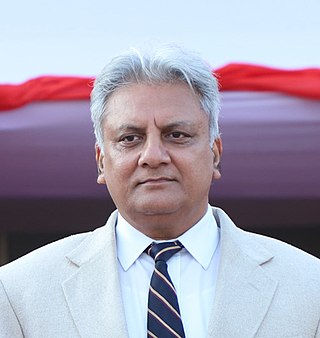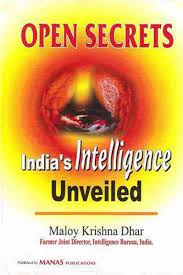Related Research Articles

The Intelligence Bureau is an intelligence and security agency in Pakistan,focused primarily on non-military intelligence. Established in 1947,the IB is Pakistan's oldest intelligence agency. It is led by the Director General,who is usually an officer from the Police Service of Pakistan.

Ajit Kumar Doval is a bureaucrat,former spymaster and the current National Security Advisor (NSA) of India. Doval is the longest serving NSA,currently serving his third consecutive five-year term since he was first appointed in May 2014 following the election of Narendra Modi as the Prime Minister of India. He is a former Director of the Intelligence Bureau (IB) and former Indian Police Service (IPS) officer from the Kerala cadre.

The Intelligence Bureau (IB) is India's internal security and counterintelligence agency under the Ministry of Home Affairs. It was founded in 1887 as the Central Special Branch. The IB is often regarded as the oldest extant intelligence organisation in the world.
The Research and Analysis Wing (R&AW) is the foreign intelligence agency of India. The agency's primary function is gathering foreign intelligence,counter-terrorism,counter-proliferation,advising Indian policymakers,and advancing India's foreign strategic interests. It is also involved in the security of India's nuclear programme.

The Special Protection Group (SPG) is an agency of the Government of India whose sole responsibility is protecting the prime minister of India and,in some cases,his or her family. It was formed in 1988 by an Act of the Parliament of India. The SPG protects the prime minister at all times both in India and abroad,as well as the prime minister's immediate family members residing with them at their official residence. Family members,however,may decline security.

The Inter-Services Intelligence is the premier intelligence agency of Pakistan. It is responsible for gathering,processing,and analyzing any information from around the world that is deemed relevant to Pakistan's national security. The ISI reports to its director-general and is primarily focused on providing intelligence to the government of Pakistan.

Asaduddin Salahuddin Owaisi is an Indian politician,who is the President of the All India Majlis-e-Ittehadul Muslimeen (AIMIM). He is a five time Member of Parliament representing the Hyderabad constituency in Lok Sabha,the lower house of the Indian Parliament. For years,he has been regularly listed by Royal Islamic Strategic Studies Centre (RISSC),among the 500 Most Influential Muslims of the world.

The National Security Advisor is the senior official on the National Security Council of India,and the chief advisor to the Prime Minister of India on national security policy and international affairs. In 2019,the term of Ajit Doval the current NSA was extended for another 5-year term,and has been assigned the rank of a Union Cabinet Minister and ranks at the seventh position in the Indian Order of Precedence.

Mayankodu Kelath Narayanan is a former Indian Police Service officer. He was National Security Advisor of India from 2005 to 2010,assuming the role after the demise of his predecessor Jyotindra Nath Dixit in January 2005. Subsequently,he served as 19th Governor of West Bengal from 2010 to 2014. The Government of India awarded him the civilian honour of Padma Shri in 1992.

Since the 1990s,the Republic of India and the State of Israel have had a comprehensive economic,military,and political relationship. In 1947,India voted against the United Nations Partition Plan for Palestine,but nonetheless recognized Israeli sovereignty in 1950. Israel opened a consulate in Bombay in 1953. Collaboration gradually increased as Israel became a key Indian ally amidst the India–Pakistan conflict;Israel supplied India with armaments,ammunition,and intelligence during the Indo-Pakistani War of 1971 and the Indo-Pakistani War of 1999. Full diplomatic relations were established in 1992,when India opened an embassy in Tel Aviv and Israel opened an embassy in New Delhi. Both countries are members of the I2U2 Group,formed in October 2021,and have stated that they have a strong bilateral relationship,sharing similarities in spirit and facing common challenges,increasingly cooperating in the industrial and technological sectors.

The National Technical Research Organisation (NTRO) is a technical intelligence agency of India. It was set up in 2004. The agency reports to the National Security Advisor and to the Prime Minister's Office. NTRO also comprises the National Critical Information Infrastructure Protection Centre and the National Institute of Cryptology Research and Development.

Dawood Ibrahim is an Indian mob boss,drug lord,and terrorist. He reportedly heads the Indian organised crime syndicate D-Company,which he founded in Mumbai in the 1970s. Ibrahim is wanted on charges including murder,extortion,targeted killing,drug trafficking,and terrorism.

On 15 June 2004,officers of the Ahmedabad Police Crime Branch and members of the Subsidiary Intelligence Bureau (SIB) of Ahmedabad shot and killed four people. Those killed in the incident were Ishrat Jahan Raza,a 19-year-old woman from Mumbra,Maharashtra,and three men –Javed Ghulam Sheikh,Amjad Ali Rana and Zeeshan Johar. The Indian Central Bureau of Investigation (CBI) made allegations about the entire operation being an instance of "encounter killing". The state agencies and police claimed that Ishrat Jahan and her associates were Lashkar-e-Taiba (LeT) operatives involved in a plot to assassinate the Chief Minister of Gujarat,Narendra Modi.

Aligarh Muslim University is a collegiate,central,and research university located in Aligarh,Uttar Pradesh,India,which was originally established by Sir Syed Ahmad Khan as the Muhammadan Anglo-Oriental College in 1875. Muhammadan Anglo-Oriental College became Aligarh Muslim University in 1920,following the Aligarh Muslim University Act.

Amarjit Singh Dulat was a spymaster and a former special director of the Indian Intelligence Bureau and former Secretary of Research and Analysis Wing from 1999 to 2000. After retirement,he was appointed as an advisor on Jammu and Kashmir in the Prime Minister's Office and served there from January 2000 to May 2004.
K. Sankaran Nair,known as Colonel Menon among his colleagues,was an Indian civil servant,diplomat and the director of Research and Analysis Wing. He served as the Indian High Commissioner to Singapore from 1986 to 1988 and was the last surviving member of the Indian Imperial Police. He was reported to have played a crucial role in the formation of Bangladesh,through R&AW operations during the Bangladesh Liberation War.

Rajiv Jain was the Director of the Intelligence Bureau of India. He belonged to 1980 batch of the Indian Police Service. He is from the Jharkhand cadre and was appointed on 1 January 2017 as the 26th Director of Intelligence Bureau after the retirement of Dineshwar Sharma and served there till 26 June 2019. Post,retirement he was appointed as a member of the National Human Rights Commission of India where he served from 1 June 2021 till 1 June 2024.

Open Secrets:India's Intelligence Unveiled is a 2005 personal memoir by Indian intelligence operative Maloy Krishna Dhar. The central theme throughout the book is that of the need for legislative oversight and checks for intelligence agencies in India. Dhar,a former Intelligence Bureau of India joint director,provides a top down view of the intelligence establishment in India and the types of pressures that it has to face in carrying out its duties including those of how the agencies are used for 'personal-political agendas'. As a historical memoir,it was as of 2015,the only information available of the Intelligence Bureau that was in the public domain. Dhar wrote this in a time when writing about the intelligence community was frowned upon to the extent of being an act of betrayal. The book remained a number one non-fiction best seller for months after its publication and stirred many a national debate.
Tapan Kumar Deka is the 28th Director of Intelligence Bureau of India. Deka is an Indian Police Service (IPS) officer of the 1988 (41RR),Deka was empanelled as Director general of police level in 2021. Deka's tenure as the Director of the Intelligence Bureau started from 1 July as his predecessor Arvind Kumar's tenure ended on 30 June 2022.
References
- ↑ "Asif Ibrahim takes over as Intelligence Bureau chief". Hindustan Times. Archived from the original on 1 January 2013. Retrieved 13 June 2014.
- ↑ "IB, RAW get new chiefs". The Hindu newspaper. Retrieved 13 June 2014.
- ↑ "Syed Ibrahim set to be first Muslim chief of IB". The Times of India. Retrieved 13 June 2014.
- ↑ Haidar, Suhasini (4 June 2015). "Ex-IB chief is Prime Minister's special envoy on counter-terror". The Hindu. Retrieved 4 June 2015.